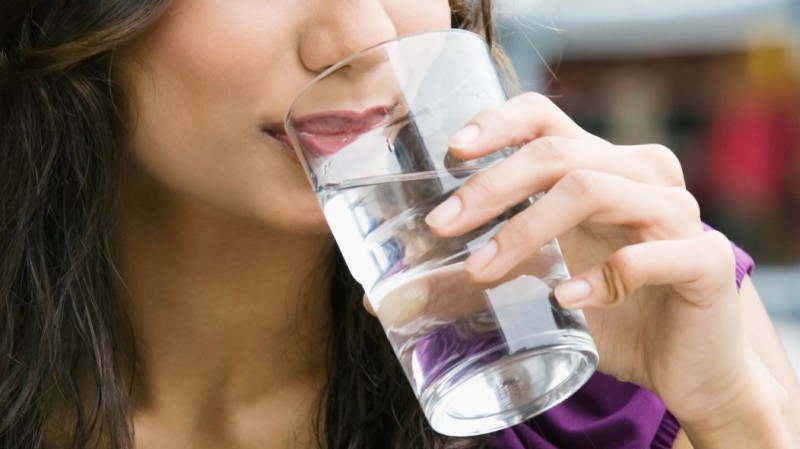
Health experts often emphasize the importance of staying hydrated for maintaining good health. Drinking an adequate amount of water offers numerous benefits to the body, ensuring proper hydration and blood flow. However, like everything else, there's a right time, amount, and method for consuming water. Drinking excessive water improperly can also pose risks to health. Let's explore when, how much, and how water should be consumed to optimize health.
1. Avoid drinking too much water at once:
Proper hydration is essential for overall health, but it's equally important to avoid excessive water intake at one time. While water is vital for various bodily functions, including temperature regulation, nutrient transportation, and waste removal, consuming too much water within a short period can overwhelm the body's systems.
The kidneys play a crucial role in maintaining fluid balance by regulating the concentration of electrolytes and eliminating excess water through urine. However, excessive water intake can strain the kidneys and lead to water intoxication, a condition known as hyponatremia. Hyponatremia occurs when the sodium concentration in the blood becomes abnormally low due to dilution from excess water.
Symptoms of hyponatremia may include headache, nausea, vomiting, confusion, seizures, and in severe cases, coma or death. Therefore, it's essential to avoid drinking large amounts of water in a short period, especially beyond the body's capacity to process and excrete it.
2. Don't drink water immediately after eating:
The timing of water consumption can significantly impact digestion and nutrient absorption. Many people have the habit of drinking water immediately after meals, believing it aids digestion. However, drinking water right after eating can dilute stomach acid, enzymes, and digestive juices, impairing the digestive process.
Stomach acid and enzymes are essential for breaking down food particles and facilitating nutrient absorption in the small intestine. When water is consumed immediately after a meal, it can dilute gastric juices, making them less effective in breaking down food and extracting nutrients.
Moreover, excessive water intake during meals can also cause bloating and discomfort by filling up the stomach too quickly, leading to overstretching of the stomach walls. To support optimal digestion, it's advisable to wait at least 30 minutes after eating before drinking water, allowing sufficient time for digestion to begin.
3. Avoid drinking too much water immediately after exercise:
Physical activity and exercise increase the body's demand for water to maintain hydration and regulate body temperature. During exercise, the body loses water through sweat to cool down and maintain thermal equilibrium. Therefore, it's essential to replenish lost fluids by drinking water before, during, and after exercise.
However, it's crucial to avoid excessive water intake immediately after intense exercise, especially in large quantities. Intense physical activity can lead to significant fluid loss through sweating, causing dehydration and electrolyte imbalances.
Drinking too much water after exercise can further disrupt electrolyte balance and dilute sodium levels in the blood, leading to hyponatremia. Instead of consuming large volumes of water at once, it's advisable to drink water gradually and replenish electrolytes lost through sweat by consuming sports drinks or electrolyte-enhanced beverages.
4. Drink water according to urine color:
Monitoring urine color is a simple yet effective way to assess hydration status and adjust fluid intake accordingly. The color of urine is influenced by the concentration of waste products and the degree of hydration in the body. Generally, pale yellow or straw-colored urine indicates adequate hydration, while dark yellow or amber-colored urine suggests dehydration.
When the body is well-hydrated, urine is more diluted and appears lighter in color due to higher water content. In contrast, dehydration leads to more concentrated urine with a darker color, indicating insufficient fluid intake.
By paying attention to urine color, individuals can gauge their hydration status and make necessary adjustments to their fluid intake. If urine appears dark yellow, it's essential to increase water consumption to maintain proper hydration levels. Conversely, clear or light-colored urine indicates sufficient hydration, and individuals can continue their current fluid intake regimen.
In summary, proper hydration is vital for overall health and well-being. By avoiding excessive water intake at once, refraining from drinking water immediately after meals, being mindful of hydration levels during and after exercise, and monitoring urine color, individuals can maintain optimal hydration and support their body's functions. Adopting these practices as part of a healthy lifestyle can help prevent dehydration, promote proper digestion, and optimize physical performance and cognitive function.
PM Modi's Mega Visit to Jammu tomorrow: These Developmental Projects in Focus
Weight loss: These 3 drinks prove to be very effective in reducing weight